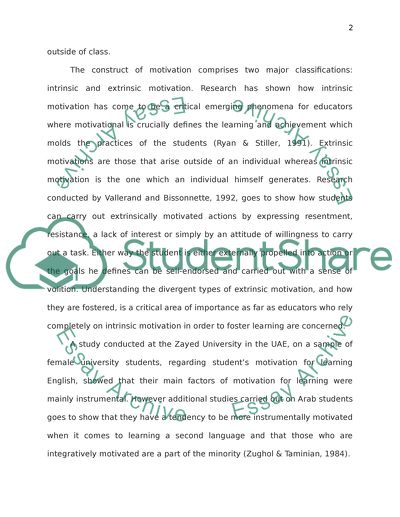Cite this document
(“Motivation of Foreign Students to Learn English Essay”, n.d.)
Motivation of Foreign Students to Learn English Essay. Retrieved from https://studentshare.org/psychology/1444755-creating-and-validating-a-survey-scale
Motivation of Foreign Students to Learn English Essay. Retrieved from https://studentshare.org/psychology/1444755-creating-and-validating-a-survey-scale
(Motivation of Foreign Students to Learn English Essay)
Motivation of Foreign Students to Learn English Essay. https://studentshare.org/psychology/1444755-creating-and-validating-a-survey-scale.
Motivation of Foreign Students to Learn English Essay. https://studentshare.org/psychology/1444755-creating-and-validating-a-survey-scale.
“Motivation of Foreign Students to Learn English Essay”, n.d. https://studentshare.org/psychology/1444755-creating-and-validating-a-survey-scale.


